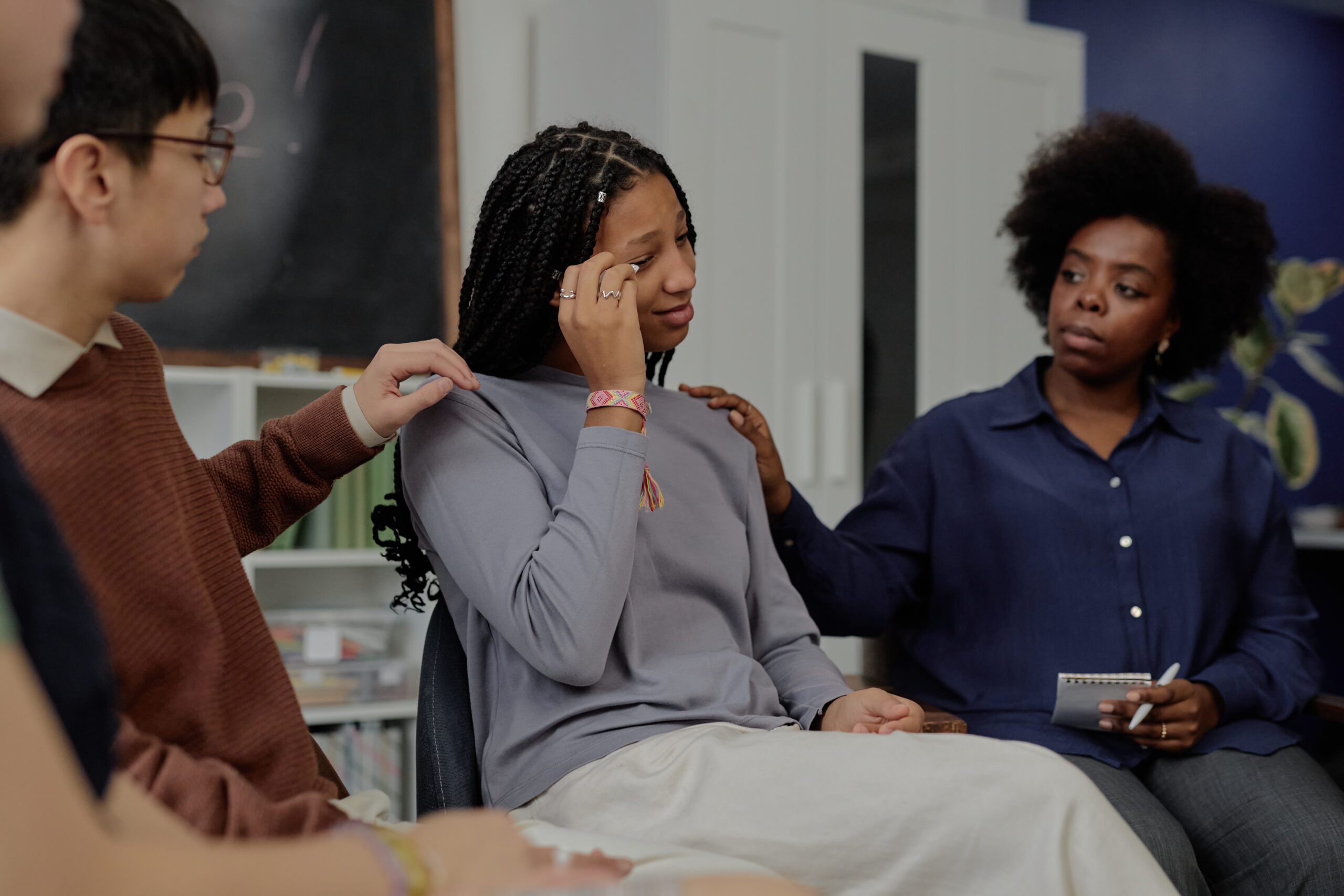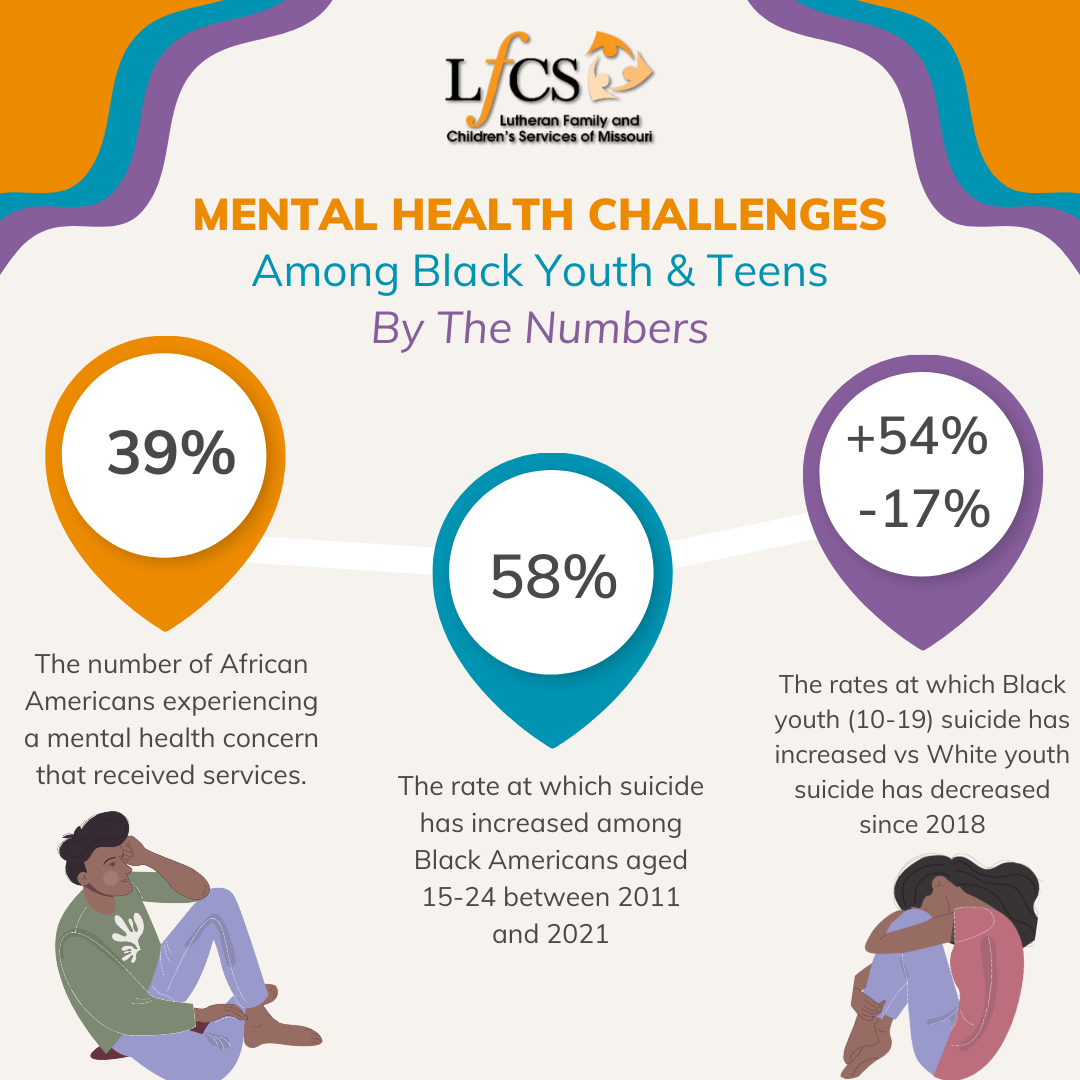
Mental health struggles among youth and teens are a growing concern across the nation, but the impact within the African American community is especially alarming. Despite making strides in raising awareness about mental health, systemic inequities, cultural stigmas, and a history of mistrust in healthcare systems continue to pose barriers to access and care.
According to the 2021 National Survey on Drug Use and Health (NSDUH), while 21% of Black and African Americans experienced a mental health concern, only 39% of these individuals received mental health services. This is significantly lower than the 52% of non-Hispanic Whites who sought care. Moreover, suicide—a stark indicator of mental health crises—has become the third leading cause of death for Black Americans aged 15 to 24, with suicide rates increasing by 58% between 2011 and 2021.

New federal data reveals even more troubling trends among Black youth. In 2022, the suicide rate among Black youth aged 10 to 19 surpassed that of their White peers for the first time. Since 2018, the rate for Black youth has surged by 54%, compared to a 17% decrease for White youth. From 2007 to 2020, the suicide rate among Black adolescents aged 10 to 17 rose by 144%, making this one of the fastest-growing mental health crises among racial and ethnic groups. (Sources: SAMHSA, Watson Coleman Taskforce Report)
The Unique Challenges Facing Black Adolescents
Black adolescents face unique risk factors that exacerbate their vulnerability to mental health challenges:
- Lack of Access and Utilization of Mental Healthcare Disparities in access to mental health services often prevent timely and effective treatment. Historic mistreatment of Black Americans in healthcare has bred mistrust, leaving many hesitant to seek professional help.
- Exposure to Racism and Discrimination Experiences of racism and discrimination can lead to feelings of hopelessness and depression. Yet, Black adolescents are significantly less likely than their peers in other demographic groups to receive care for depression.
- Economic Inequality Financial hardships and living in impoverished conditions increase stress and limit access to mental health resources, perpetuating cycles of untreated mental illness.

- Community Violence and Trauma Exposure to violence within communities can result in trauma, a significant risk factor for suicidal thoughts and behaviors.
- Mental Health Stigma Many Black families address mental health issues privately, rather than seeking external professional help, due to stigma and mistrust of the healthcare system. Adolescents may also fear being teased by peers for receiving mental health treatment. (Source: Newport Academy)
LFCS: Committed to Every Child’s Mental Health
LFCS recognizes the impact that mental health conditions have within the African American communities in Missouri. We are committed to being part of the solution and will continue to answer the call for those seeking help during their most difficult days. Every child deserves access to mental health care; which is why we offer little to no-cost mental health services throughout the state.
Our services include:
- Outpatient Therapy: Personalized care to support children and families.
- Telehealth Options: Accessible mental health care for those unable or not comfortable visiting in person.
- School Counseling: In-school services in St. Louis and Kansas City area schools to meet children where they are.
Whether a child is struggling with anxiety, depression, suicidal thoughts, or other mental health concerns, LFCS is here to provide evidence-based, compassionate care. Together, we can create a brighter future for every child in Missouri.
